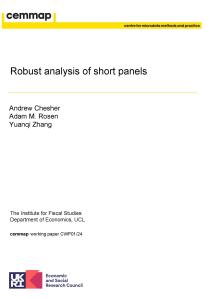We analyze sorting in a standard market environment characterized by search frictions and random search, where both workers and jobs have multi-dimensional characteristics. We offer definitions of multi-dimensional positive and negative assortative matching in this frictional environment. We say that matching is positive assortative in dimension (j,k) if workers with higher endowments in skill dimension k are matched to a distribution of jobs with higher values of job attribute j, in the sense of first-order stochastic dominance. We then provide conditions on the primitives of the economy (technology and distributions) under which sorting arises in equilibrium. An essential restriction for positive sorting is a single-crossing condition on the technology, although in general further restrictions on type distributions are needed. Guided by our theoretical framework, we develop an empirical test of the standard assumption that heterogeneity in the data is one-dimensional. We conduct simulation exercises (i) to show that the test correctly reveals misspecification and (ii) to quantify the errors in assessing sorting, mismatch and policy caused by the restriction to one-dimensional heterogeneity when our test indicates that said restriction is not valid.









